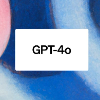Autonomous agents have demonstrated significant potential in automating complex multistep decision-making tasks. However, even state-of-the-art vision-language models (VLMs), such as GPT-4o, still fall short of human-level performance, particularly in intricate web environments and long-horizon tasks. To address these limitations, we present ExACT, an approach to combine test-time search and self-learning to build o1-like models for agentic applications. We first introduce Reflective Monte Carlo Tree Search (R-MCTS), a novel test time algorithm designed to enhance AI agents' ability to explore decision space on the fly. R-MCTS extends traditional MCTS by 1) incorporating contrastive reflection, allowing agents to learn from past interactions and dynamically improve their search efficiency; and 2) using multi-agent debate for reliable state evaluation. Next, we introduce Exploratory Learning, a novel learning strategy to teach agents to search at inference time without relying on any external search algorithms. On the challenging VisualWebArena benchmark, our GPT-4o based R-MCTS agent achieves a 6% to 30% relative improvement across various tasks compared to the previous state-of-the-art. Additionally, we show that the knowledge and experience gained from test-time search can be effectively transferred back to GPT-4o via fine-tuning. After Exploratory Learning, GPT-4o 1) demonstrates the ability to explore the environment, evaluate a state, and backtrack to viable ones when it detects that the current state cannot lead to success, and 2) matches 87% of R-MCTS's performance while using significantly less compute. Notably, our work demonstrates the compute scaling properties in both training - data collection with R-MCTS - and testing time. These results suggest a promising research direction to enhance VLMs' capabilities for agentic applications via test-time search and self-learning.
翻译:暂无翻译


